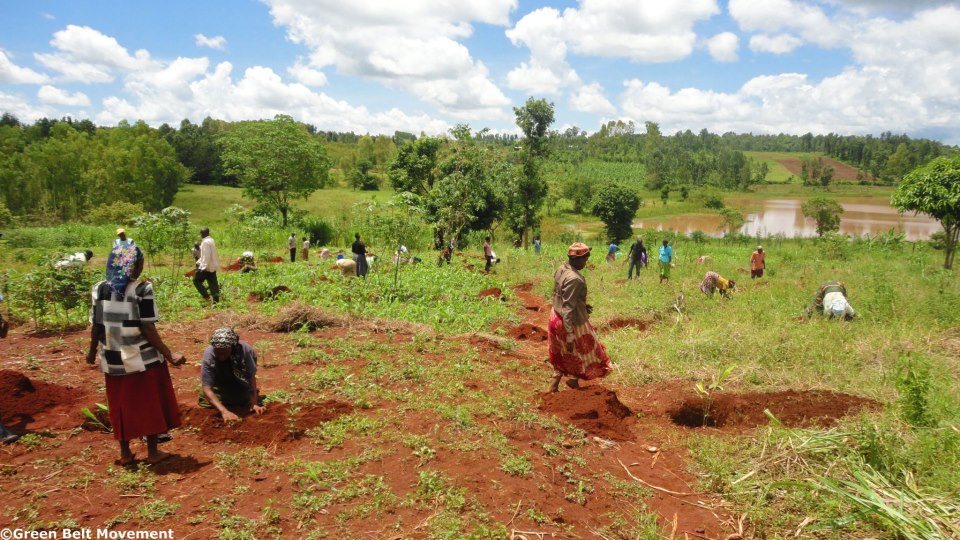Inteview to a collavorator of the NGO "Etiopia Utopia":
This interview had to be made in Spanish, because the project that we have embarked have asked.
Entrevista a Lourdes Fernandez.
ONG: Etiopia Utopia.
- ¿Por qué decidiste colaborar con esta ONG?
En primer lugar porque tenía tiempo.
Vi que habia muchas necesisdades y aparte, coincidió que conocí a
un padre blaco de aquí, de Hernani que estuvo trabajando en Etiopia,
Ángel Olaran. Bueno, una cosa llevó a la otra y nos empezamos a
implicar una serie de personas y llegamos a constituir esta ONG;
fundamentalmete, trabajamos en Bucro, un pueblo que está al norte de
Etiopia, con bastantes proiectos que si quereis más tarde os los
comento.
- ¿Y que tipo de cosas haciais para mejorar la situción en la que Etiopia se encontraba?
Ángel tiene allí una infraestructura
bastante grande, también una escuela pública, para los niños
huerfanos. Todo esto está pasando principalmente, por las guerras
que han tenido contra Eritrea. En principio, entramos por ahí, y
luego, poco a poco fuimos aunmentando los proiectos, bien por
petición de los etiopes o porque nosotros veiamos la necesidad de
hacerlo.
También, construimos una importante
área sanitaria que está en contacto las veinticuatro horas del día
con el hospital de San Sebastián, con aporte de personal médico y
asesoración médica. Además, hay una zona impresincible llamada
“Zona ecológica” que limpia los rios, la canalización del agua,
etc... una clínica dental... y como anteriormente he dicho se nos
van aumentanto los proiectos. El último que nos han pedido ha sido
la construcción de una farmacia en el centro de Etiopia.
- ¿Por qué crees que es importante que la gente se anime a colaborar con estas ONGs?
Creo que las ONGs están cumpliemdo un
papel muy importante que ninguno de los estdos recoge. Hay ayudas de
los estados al tercer mundo, pero realmente, en mi opinión son
insuficientes. Entonces las ONGs vienen a cumplir ese hueco y ese
espacio. Las ONGs de lo que se nutren es precisamente de la
ciudadania, de las personas. Por esto, es imporatnte que las personas
se impliquen, a nada que seas un poco inquieto, pues ebidentemente te
enchufas en este tipo de ayudas. La gente se presenta para ayudara
este problema del tercer mundo, que por otro lado es un problemas
creado por el primer mundo. Si el primer mundo no achuchara como
achucha, probablemente vivirian mejor.
Etiopia es un país rico en muchas
cosas y lo que revierte para ellos es poquísimo. Entonces, es
imporante que las ONGs funcionen y también que la gente de una
manera u otra se implique.
Ahora tenemos aquí, en España, el
problema, grande problemas, de probreza y a veces uno se pregunta por
qué sigo ayundando si en el sitio en dónde vivo están igual. Creo
que no es una decisión de a este si y al otro no. La razón es que
aquí hay muchos más apollos que en Etiopia. Y si nos olvidamos
nosotros, no hay reconocimineto ni de dificultades.
- ¿Crees que la juventud de hoy en día partucipa en estos proiectos?
Si, nosotros desde luego en nuestra
fundación si. Es verdad que quién lleva la carga organizativa somos
personas adultas, mayores, por decirlo de alguna manera, pero tenemos
un grupo de voluntariado joven, bien que va a pasar temporadas allí
o bien está aquí colaborando e incluso nos proponen cosas nuevas.
Ane Irati Cartajena,
Antigua-Luberri, Batxiler.






